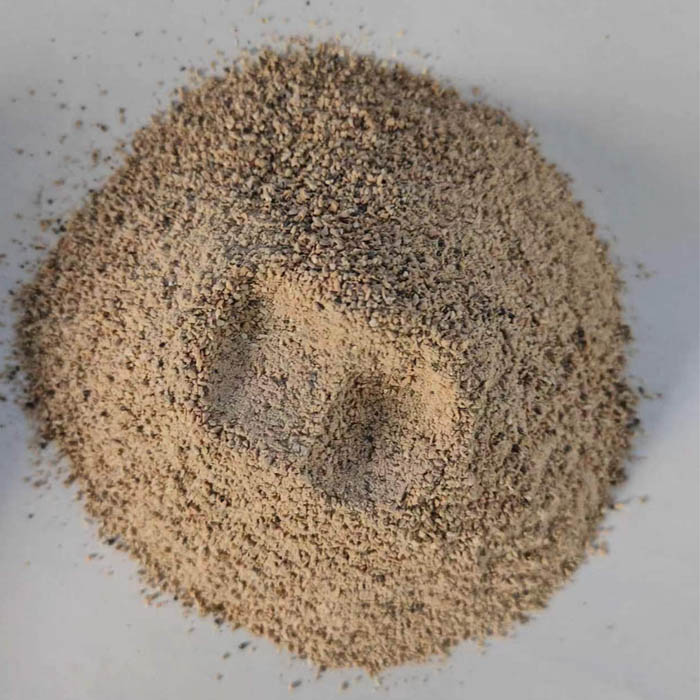Dec . 15, 2024 17:41 Back to list
Vermiculite Fireproof Board Manufacturers and Their Production Processes
Vermiculite Fireproof Board Factories A Vital Component of Modern Construction
In the realm of construction and fire safety, vermiculite fireproof boards have emerged as crucial materials, widely recognized for their exceptional fire-resistance properties and insulation capabilities. As the demand for safer and more sustainable building solutions grows, so does the importance of understanding the role of vermiculite fireproof board factories. This article explores the features, manufacturing processes, applications, and significance of these specialized factories within the construction industry.
Understanding Vermiculite
Vermiculite is a naturally occurring mineral that expands significantly when heated, a process known as exfoliation. This unique characteristic makes it an excellent material for fireproofing applications. The resultant vermiculite particles are lightweight, non-combustible, and possess low thermal conductivity, which allows them to effectively insulate structures and protect against fire hazards. Such properties are critical for meeting stringent building regulations and ensuring the safety of occupants.
The Manufacturing Process
Vermiculite fireproof boards are manufactured through a combination of processes that involve sourcing high-quality vermiculite ore, heating it to high temperatures to expand, and combining it with various binders and additives to enhance its properties. The production process typically includes the following steps
1. Mining and Processing The pure vermiculite ore is mined, then crushed and screened to remove impurities. This ensures that the final product is of high quality.
2. Exfoliation The processed vermiculite is subjected to high temperatures, usually ranging from 800 to 1200 degrees Celsius. This exfoliation process causes the vermiculite to expand into lightweight granules.
3. Mixing Ingredients Exfoliated vermiculite is then mixed with binders such as cement or gypsum, along with other additives that may enhance fire resistance, water resistance, or structural integrity.
4. Forming Boards The mixture is pressed into boards using molds. The thickness and density can be adjusted depending on the intended application.
6. Quality Control Rigorous testing is conducted to ensure that the boards meet industry standards for fire resistance and other relevant criteria, including thermal performance and mechanical properties.
vermiculite fireproof board factories

Applications in the Construction Industry
Vermiculite fireproof boards have a wide range of applications in both residential and commercial construction. They are commonly used for
- Firewalls and Partitions Vermiculite boards are an effective solution for creating fire-rated walls and partitions, helping to contain flames and reduce the spread of fire within buildings.
- Ceilings and Roofs These boards are employed in the construction of fire-rated ceilings and roofing systems, providing both insulation and fire protection.
- Industrial and Commercial Buildings In environments where fire safety is paramount, such as factories and warehouses, vermiculite boards help protect structural steel and other critical elements from fire damage.
- Green Building Initiatives Vermiculite is a natural material, making vermiculite fireproof boards an eco-friendly choice for construction projects focused on sustainability.
The Importance of Vermiculite Fireproof Board Factories
The role of vermiculite fireproof board factories is indispensable in supporting the construction industry’s need for safe and reliable fireproof materials. These factories not only contribute to the local economy by providing jobs and fostering innovation in building materials but also play a crucial role in enhancing public safety.
With increasing concerns about fire hazards and the need for sustainable building practices, these factories are positioned to meet the evolving demands of architects, builders, and regulatory agencies. Their focus on quality, safety, and sustainability ensures that the materials produced can withstand the test of time, providing peace of mind for all stakeholders involved.
Conclusion
Vermiculite fireproof board factories represent a critical intersection of innovation, safety, and sustainability in modern construction. By harnessing the unique properties of vermiculite, these facilities play a vital role in promoting fire safety and environmental responsibility. As the construction sector continues to evolve, the importance of these factories will only grow, making them an essential part of our built environment. Embracing the advancements in manufacturing processes and material science will ensure that vermiculite fireproof boards remain at the forefront of fire protection solutions.
-
High Purity Graphitized Petroleum Coke | Low N Recarburiser
NewsAug.08,2025
-
Fe-C Composite Pellets for BOF: Enhance Steelmaking Efficiency
NewsAug.07,2025
-
Eco-Friendly Granule Covering Agent | Dust & Caking Control
NewsAug.06,2025
-
Fe-C Composite Pellets for BOF: High-Efficiency & Cost-Saving
NewsAug.05,2025
-
Premium Tundish Covering Agents Exporters | High Purity
NewsAug.04,2025
-
Fe-C Composite Pellets for BOF | Efficient & Economical
NewsAug.03,2025
